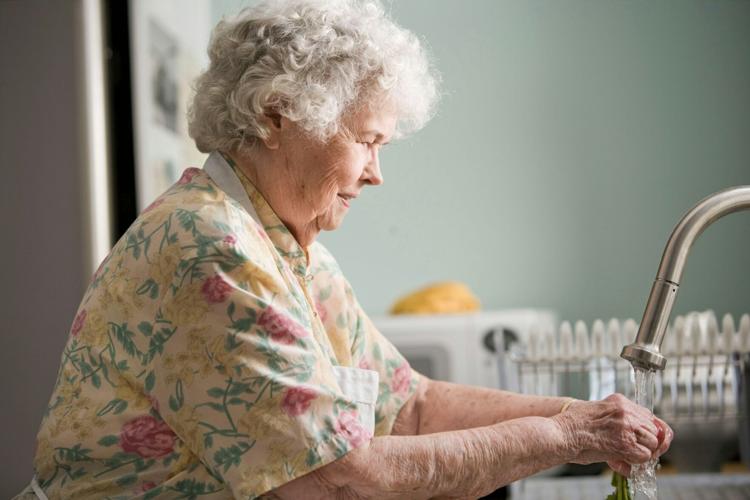In the journey of life, there comes a time when our beloved elders require specialized care and attention. As our parents and grandparents age, their needs evolve, and ensuring they receive the right support becomes paramount. This transition can often be emotionally challenging for both seniors and their families, as it signifies a shift in roles and responsibilities. However, amidst these changes, there emerges an opportunity for growth, connection, and profound acts of compassion. Senior care, in its myriad forms, serves as a beacon of hope and support, offering tailored solutions to address the unique needs of each individual. It is a testament to the enduring bond between generations and a commitment to preserving the dignity and well-being of our aging loved ones.

Understanding the Importance of Senior Care
As our loved ones age, their physical, emotional, and cognitive needs undergo significant changes. Whether it's assistance with medication management, mobility support, or companionship, senior care solutions are designed to promote independence while ensuring safety and well-being. Simple daily tasks may become challenging, and they may require assistance with activities they once performed effortlessly. Senior care acknowledges and addresses these evolving needs, providing personalized support to enhance the quality of life for elderly individuals.
Types of Services
Senior care encompasses a wide range of services tailored to meet the diverse needs of aging individuals. From in-home care provided by trained professionals to assisted living facilities offering round-the-clock support, families have various options to choose from based on their loved one's requirements. In-home care allows seniors to remain in the comfort of their own homes while receiving personalized assistance with daily tasks. Assisted living facilities provide a supportive environment where residents can access healthcare services, social activities, and assistance with daily living activities. A detailed assessment will illuminate all the physical, emotional and cognitive needs your loved one may have. Securing the right expert care for seniors on time will help them remain active, independent and comfortable throughout their later years. This kind of support can also ease the emotional and physical burden on family caregivers. With the right plan in place, everyone involved gains peace of mind.
Benefits of In-Home Care
For many seniors, the familiarity and comfort of their own homes hold immense value. In-home care services enable elderly individuals to age in place while receiving the assistance they need to maintain independence and dignity. From help with personal hygiene to meal preparation and light housekeeping, in-home caregivers offer comprehensive support tailored to each client's specific needs. Additionally, in-home care promotes continuity of routines and fosters a sense of security and familiarity, which can positively impact overall well-being.
The Role of Assisted Living Facilities
Assisted living facilities provide a supportive living environment for seniors who require more extensive assistance with daily activities. These facilities offer a range of services, including assistance with personal care, medication management, and recreational activities. By residing in an assisted living community, seniors have access to round-the-clock care from trained professionals while enjoying social interaction and engagement with peers. Assisted living facilities strive to create a vibrant and enriching environment that promotes independence and enhances quality of life for residents.
Memory Care for Individuals with Dementia
For seniors living with dementia or Alzheimer's disease, specialized memory care services are essential to ensure their safety and well-being. Memory care facilities offer a secure and supportive environment designed to meet the unique needs of individuals with cognitive impairments. These facilities employ trained staff who understand the challenges associated with dementia and are equipped to provide personalized care and support. From structured daily routines to therapeutic activities and sensory stimulation, memory care programs aim to enhance cognitive function and promote emotional well-being for residents.
Financial Considerations and Planning
Navigating the financial aspects of senior care can be daunting for families. It's essential to explore various funding options, such as long-term care insurance, Medicaid, and veteran benefits, to determine the most suitable solution for your loved one's needs. Additionally, proper financial planning can help mitigate the costs associated with senior care and ensure that your loved one receives the support they require without placing undue strain on your family's finances. Consulting with a financial advisor or eldercare specialist can provide invaluable guidance in this process.
Choosing the Right Senior Care Provider
Selecting a senior care provider is a significant decision that requires careful consideration. Families should research and evaluate potential providers based on factors such as reputation, accreditation, staff qualifications, and range of services offered. It's essential to schedule consultations with prospective providers to discuss your loved one's needs and preferences and assess the compatibility of their approach with your expectations. Visiting facilities and speaking with current residents and their families can also offer valuable insights into the quality of care provided. You might need respite care programs in Burley or explore other nearby locations that offer temporary support for seniors. These options can provide much-needed flexibility during transitions or when primary caregivers are unavailable.
Creating a Care Plan
Once a senior care provider has been selected, it's time to develop a comprehensive care plan tailored to your loved one's individual needs and preferences. A care plan outlines the specific services and support required, as well as any preferences regarding caregiver schedules, activities, and medical preferences. Regular communication with the care team is essential to ensure that the plan remains up-to-date and responsive to your loved one's evolving needs. Flexibility and collaboration are key to creating a care plan that promotes optimal well-being and satisfaction for all involved.
The Importance of Emotional Support for Families
Caring for an aging loved one can be emotionally challenging for families, often evoking feelings of guilt, stress, and uncertainty. Family members need to prioritize self-care and seek emotional support to cope with the demands of caregiving. Support groups, counseling services, and respite care can provide valuable resources and opportunities for families to connect with others facing similar challenges. By acknowledging and addressing their own emotional needs, families can better support their loved ones and navigate the complexities of senior care with compassion and resilience.

Senior care is more than just a service; it's a commitment to enhancing the quality of life for our aging loved ones. By embracing personalized care tailored to individual needs, families can provide their elders with the support and assistance they need to thrive in their later years. Whether opting for in-home care, assisted living, or specialized memory care, the ultimate goal remains the same: to provide peace of mind for families and ensure the well-being and happiness of their cherished seniors. In this journey, communication, compassion, and collaboration are the cornerstones of effective senior care, paving the way for a fulfilling and dignified aging experience.
Visit Craft Concierge for superb primary care with unlimited doctor appointments and no hidden fees.



Post a comment as Guest
Report
Watch this discussion.
(0) comments
We welcome your comments
Log In
Post a comment as Guest
Keep it Clean. Please avoid obscene, vulgar, lewd, racist or sexually-oriented language.
PLEASE TURN OFF YOUR CAPS LOCK.
Don't Threaten. Threats of harming another person will not be tolerated.
Be Truthful. Don't knowingly lie about anyone or anything.
Be Nice. No racism, sexism or any sort of -ism that is degrading to another person.
Be Proactive. Use the 'Report' link on each comment to let us know of abusive posts.
Share with Us. We'd love to hear eyewitness accounts, the history behind an article.